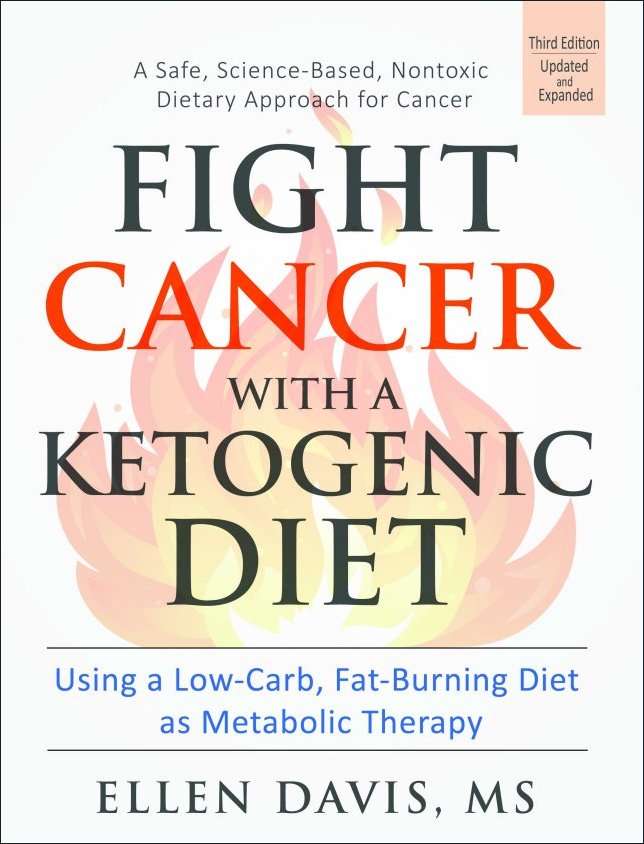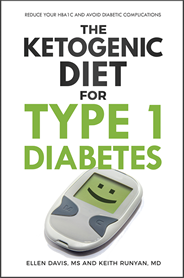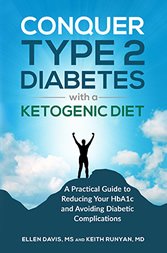What Causes Heart Disease?
Medical review by Albert J. Hart, MD
The true evidence of what causes heart disease is finally coming to light, and it's not the evil cholesterol and saturated fat in our diets. You may be surprised at the list below, but there is a great deal of real research in Pubmed which backs up the information in the list below.
I'll also note below that a ketogenic diet improves the risk factors for heart disease.
What Causes Heart Disease: The Main Players

Wheat consumption. Surprised? Unconvinced? Okay, take a look at Denise Minger's analysis of the data from the China Study here. Or you can read this study, in which the authors wrote: "The consumption of wheat flour...was positively correlated with all three diseases [cardiovascular disease, hypertensive heart disease, and stroke]."
A diet high in carbohydrates. More and more research is pointing to a high carb diet as one of the main factors in what causes heart disease. Here's why. Eating lots of carbohydrates on a daily basis has the following effects on heart health:
- Elevates blood glucose levels and in turn, increases circulating insulin levels, contributing to insulin resistance. High blood glucose is inflammatory and damages body tissues through glycation of the protein structures (think of what pouring maple syrup on a keyboard would do to its performance). See this paper and this paper.
- Increases your risk of coronary heart disease and mortality through the ravages of high blood sugar. See this study and this study and this paper.
- Elevates triglyceride levels. High levels of triglycerides are strongly associated with heart attack risk. increases the prevalence of small, dense, glycated LDL cholesterol in the blood (that's the dangerous kind). See this paper and this paper.
- Reduces blood levels of healthy HDL cholesterol. Low levels of HDL are associated with a higher risk of atherosclerosis.
- Increases the risk of the development of Metabolic Syndrome, which is characterized by the presence of elevated fasting glucose, low HDL cholesterol, high LDL cholesterol, high triglycerides and high fasting insulin. See the vicious circle there?
- Elevates blood levels of lipoprotein(a), a cholesterol derivative of LDL highly associated with heart attack risk.
- Increases insulin resistance and the risk of diabetes, both of which are highly correlated with heart disease risk increase.
Other Causes of Heart Disease
- Oxidized LDL cholesterol associated with a high polyunsaturated fat consumption (i.e., too much vegetable oil in the diet): Polyunsaturated oils are highly unstable and inflammatory and increase both Lp(a) and oxidized LDL within the body. This includes fish oil capsules, which are high in polyunsaturated fatty acids. See this study which showed that men who took fish oil capsules over an extended time period showed a greater risk of cardiac death, and especially sudden cardiac death.
- Copper deficiency in the body: see this post.
- Low Vitamin D levels: Vitamin D has so many roles in the body, that a lack of it effects not only the heart but every other body system. For specifics on heart function effects, see this study and this study.
- Low Magnesium Levels: Magnesium plays a critical role in cellular respiration, muscle strength and nerve function, and a magnesium deficiency is highly correlated with heart dysfunction.
- Lack of exercise: a sedentary lifestyle contributes to insulin resistance and weakened muscles. Remember, the heart is a muscle.
- Hypothyroidism: Low thyroid function is associated with increased heart problems.
- Smoking: smoking reduces the availability of oxygen to the body systems. Hence the heart receives less oxygen than it needs to pump efficiently, and it results in damage to the heart muscles cells.
- CoQ10 deficiency: CoQ10 or ubiquinol is a critical substance needed by the body for cellular respiration. The body makes it, but as we age, it makes less. In addition, statin drugs prescribed to lower cholesterol deplete this substance, and the result is an increase in cardiomyopathy.
In a nutshell, all the factors above increase body inflammation. Chronic inflammation is highly correlated with not only what causes heart disease, but many other kinds of body disease.
How a Ketogenic Diet Reduces the Risk of Heart Disease
A high fat, ketogenic diet naturally provides more copper, vitamin D, magnesium and selenium because the foods it emphasizes are higher in those nutrients.
In addition, a ketogenic diet improves the metabolic markers for heart disease risk. It's that simple. When the carbohydrate intake is lowered, and saturated fat intake is increased, this is what happens to the body risk markers:
- Blood glucose levels drop, reducing glycation and the proliferation of advanced glycation tissue damage
- Triglyceride levels drop
- Small, dense LDL become the large, fluffy non dangerous kind
- HDL cholesterol levels increase
- Blood glucose and insulin levels are reduced
- Metabolic syndrome factors are improved
- Lipoprotein (a) levels are reduced
- Insulin levels drop, which results in less insulin resistance, and greater insulin sensitivity
For the research evidence, see this study, this study, this study, and this study. Or you can test it on yourself. If you have any of these health issues, get a baseline blood test, then go on a ketogenic diet for a month, and then get another blood test. See what your numbers do, and decide for yourself what causes heart disease.
Sources for Further Reading
Here's a much longer list of the many studies which DON'T support the Diet Heart Hypothesis. The links below offer more information as well.
All of my books are available in electronic PDF, and now in paperback on Amazon!
 |
 |
 |
|
Buy paperbook on Buy paperback on Amazon Buy the e-Book via Paypal |
Buy paperback on Buy paperback on Amazon Buy the e-Book via Paypal |
Buy paperback on Buy paperback on Amazon Buy the e-Book via PayPal |
Done with What Causes Heart Disease, back to Causes of Coronary Heart Disease